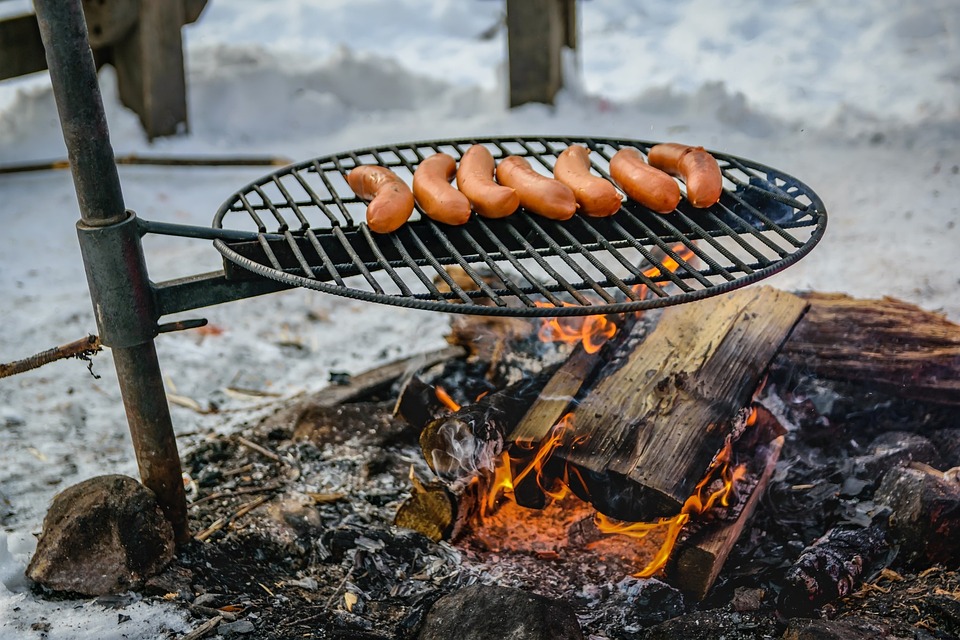Table of Contents
Introduction
Extreme camping in cold weather provides a unique and thrilling experience for outdoor enthusiasts.
While traditional camping offers its own set of challenges, cold weather camping adds an extra level of excitement and adventure.
This article explores the thrills and challenges of extreme camping in cold weather, offering insights and tips for those brave enough to embark on these icy adventures.
1. Gear and Preparation
When it comes to cold weather camping, proper gear and preparation are essential.
Investing in high-quality cold weather camping gear, such as a four-season tent, insulated sleeping bags, and warm clothing layers, is vital to ensure your safety and comfort in freezing temperatures.
It’s also crucial to research the weather conditions and pack accordingly.
Being prepared with extra fuel, food, and emergency supplies is a must to handle any unexpected circumstances that may arise in the extreme cold.
2. Campsite Selection
Choosing the right campsite is crucial for a successful cold weather camping trip.
Look for a location that offers protection from the wind, such as a forested area, to minimize exposure to the elements.
Setting up your campsite on elevated ground can also prevent water accumulation in case of rain or melting snow.
Additionally, ensure you have access to a water source, but be mindful of its freezing potential.
Remember to follow leave-no-trace principles to preserve the natural environment and the experience for future campers.
3. Fire Building and Cooking
Building a fire in cold weather is a vital skill for survival and comfort.
Collecting dry firewood, using a firestarter, and keeping it protected from snow or moisture are essential steps to ensure a reliable fire.
Cooking in cold weather can also be a challenge, as it requires extra fuel and attention to prevent freezing or poorly cooked food.
Insulated containers and warm water thermoses can help keep meals and drinks hot, providing sustenance and warmth during your cold weather camping adventure.
4. Safety Considerations
Cold weather camping presents unique safety considerations that must be taken seriously.
Hypothermia, frostbite, and slipping on icy terrain are potential risks to be aware of and prevent.
Layering adequate clothing, insulating sleeping gear, and ensuring proper hydration is crucial to mitigate these risks.
Additionally, always inform someone of your camping plans, including your expected return date, and consider investing in emergency communication devices, such as a satellite phone or personal locator beacon, for remote locations.
Frequently Asked Questions:
Q1: What temperature is considered extreme cold weather camping?
A1: Extreme cold weather camping usually refers to temperatures below freezing (32°F or 0°C) or even subzero temperatures.
However, the perception of cold can vary greatly depending on an individual’s tolerance and the region they are camping in.
Q2: Can I use regular camping gear for cold weather camping?
A2: Regular camping gear is not suitable for extreme cold weather camping.
Four-season tents, insulated sleeping bags, and warm clothing layers are necessary to withstand freezing temperatures and harsh conditions.
Q3: How do I stay warm during the night while camping in cold weather?
A3: Staying warm during cold weather camping nights requires using appropriate gear.
Layering clothing, using an insulated sleeping pad and sleeping bag, and placing hand warmers near sensitive areas can help retain body heat and ensure a comfortable sleep.
Q4: Can I go cold weather camping alone?
A4: While it is possible to go cold weather camping alone, it is generally recommended to have at least one camping partner for safety reasons.
Having someone to assist in case of emergencies and to share the experience also adds an extra layer of security and enjoyment.




